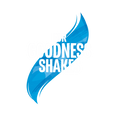By the end January 2019, it’s expected that over 300,000 people will have joined the 4-week ‘Veganuary’ pledge – a commitment to avoiding meat and dairy for the whole month. From Greggs’ vegan sausage roll announcement to McDonalds launching a vegan-friendly happy meal, it’s no secret that plant-based living is starting to go mainstream. But for those of us that are new to the concept of Veganuary, or trying to become more plant-based, it can still be difficult to understand how we can maintain protein levels without meat or dairy.
That’s why we’ve pulled together this guide to plant-based protein sources, covering everything from oat to soya milk, digestibility and amino acid profiles. We’ve even addressed concerns about soya milk and man-boobs!
Which alternative milks have the most protein?
Most plant-based milks have a relatively low protein level versus their dairy counterparts, at 0.5-2g protein per 100ml versus 3.6g found in milk.

Are alternative milks easy to digest?
Many of the plant sources such as pea and hemp have only around half the digestibility that dairy proteins do, meaning that you end up with less protein being absorbed for the same serving size. Soy protein is the main exception to this, with a similar level of protein per 100g to milk, and a comparable digestibility level when you use soy protein isolate.
Soy also has a full amino acid profile which sources such as hemp do not. This means it contains all 20 amino acids. It’s taste profile is also much more subtle than other vegan sources such as pea.

Will I get "moobs"?!
In the early days of body building soya protein was often avoided as soya beans contain plant forms of the female hormone oestrogen, known as phytoestrogens. However, plant hormones will not behave the same way in the human body as they do in plants, and do not cause a direct elevation in blood oestrogen levels.
What are the common challenges of vegan diets?
For vegans, or flexitarians looking to dramatically reduce their meat and dairy intake, ensuring that you have adequate protein in your diet is key. Many of the meat alternatives naturally have lower protein levels in them. For instance, whilst a chicken breast has 24g protein per 100g, lentils (whilst one of the highest protein pulses) have only half that amount with 10g protein per 100g. Vitamin B12 is also a key consideration, as not eating meat or dairy means a B12 deficiency is highly likely in a vegan diet without supplementation.
You don't need to compromise taste or nutrition when you go plant-based!
We firmly believe that you shouldn’t have to sacrifice taste when you switch your protein source, which is why we’ve worked rigorously to develop our first ready-to-drink protein shake specifically with vegans in mind. With 20g quality protein from soy, our Plant Protein drink is a quick and convenient way for you to keep your protein levels topped up. Starting from 99 calories and less than 1g fat, it’s a convenient way for you to hit your daily protein goal whether you are vegan or simply trying an alternative protein source. We’ve developed three delicious flavours for you to choose from; Smooth Chocolate, Vanilla Chai & Strawberry.





